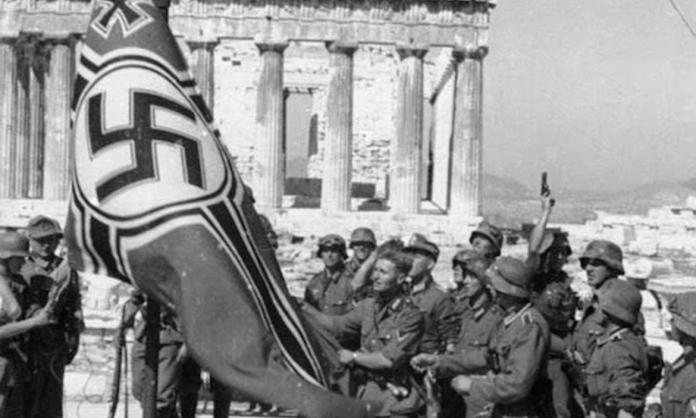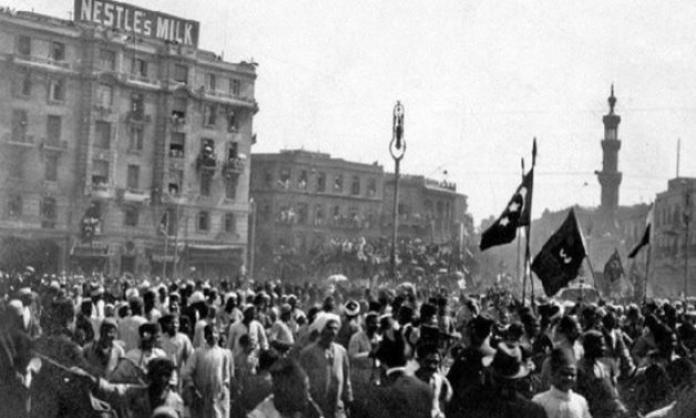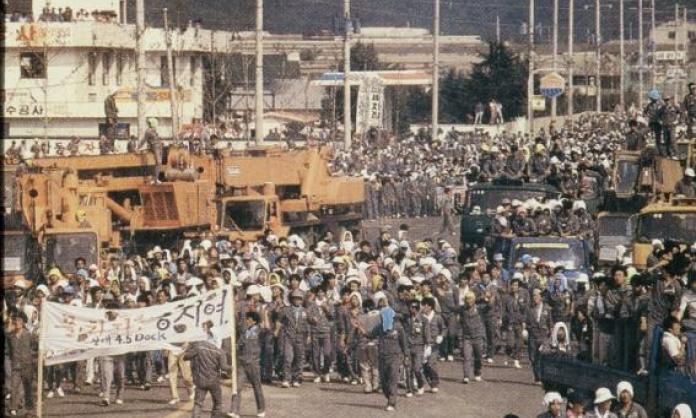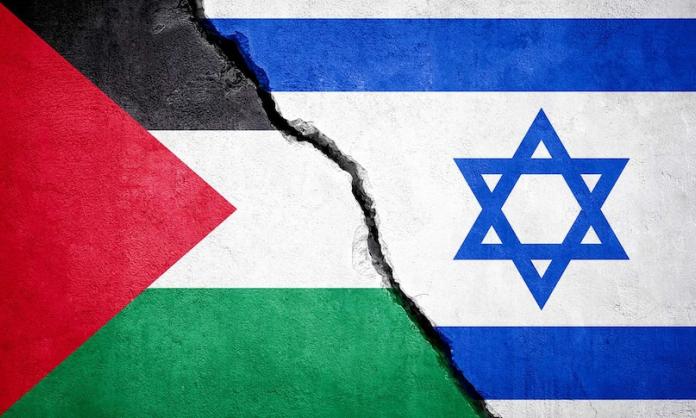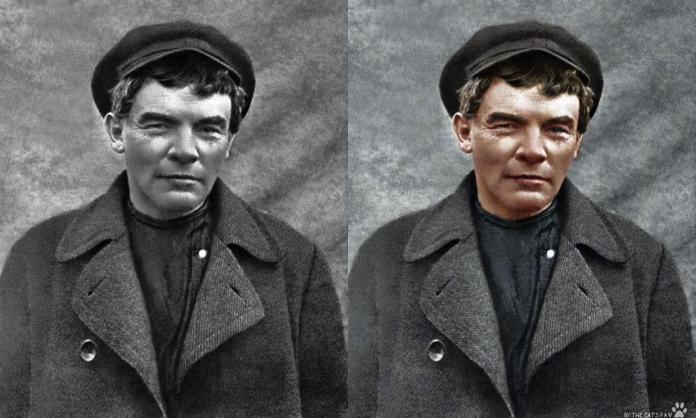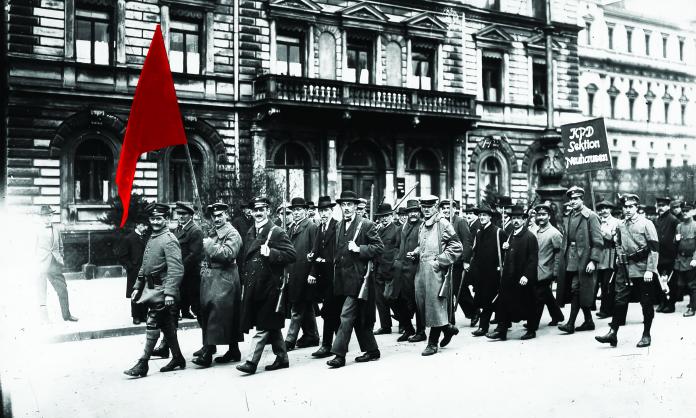Imperialist occupation has always generated resistance. Time and again, oppressed people have risen up heroically to drive out occupying armies. But heroism isn’t always enough: the politics of the resistance frequently make the difference between victory and defeat.
Nowhere was this clearer than in Greece during the occupation by the fascist Axis powers during World War II. The working class and peasants rose up in revolt against both the Nazi occupiers and the social order that had brought them misery before the war. Hundreds of thousands were drawn into the struggle.
Tragically, though, the hopes for liberation and a new order were dashed, sabotaged from without and within. The marvellous popular resistance movement was smashed by the British army, which fought alongside Greek fascists to crush the working class of Athens. The British and the fascists would not have succeeded but for the betrayal of the struggle by the Communists. The Greek Communist Party was the biggest party in Greece and led the resistance. It advocated a new postwar order with justice for the downtrodden. But its bankrupt political strategy of accommodating to capitalism meant it led the struggle into a dead end.
In 1936, a former army officer and admirer of Hitler, Ioannis Metaxas, seized power in league with King George II, a puppet of Britain, the dominant imperialist power in the region. The new regime crushed an emerging liberal democracy and unleashed a reign of terror on the left, arresting and jailing thousands.
When Italy invaded Greece in September 1940, popular resistance soon drove the Italians back. Embarrassed by the failure of its junior partner, Germany sent in its armed forces—the Wehrmacht—in April 1941. Within three weeks, the Greek government surrendered and the Axis powers divided up the country.
The Greek ruling class split into two camps. Conservative politician Ioannis Rallis set up a collaborator regime, while the king set up a government in exile in Egypt, simply to await Germany’s defeat at the hands of the British.
The German occupation was a catastrophe for the civilian population. During the winter of 1942, 250,000 people starved to death because of food requisitions, pillaging and looting by the occupying armies. Thousands of men were conscripted to work in Germany and its Axis ally Bulgaria. In March 1943, the Wehrmacht deported virtually the entire 50,000-strong Jewish community of Salonika to Auschwitz. Only a few survived. The Rallis government established “security battalions”—fascist hoodlums—that outdid even the German army in viciousness towards anyone suspected of leftist sympathies.
Resistance emerged within months of the German invasion. The Communist Party played a pivotal role, setting up the National Liberation Front (the EAM) in September 1941. As the only visible force, EAM was soon swamped by an influx of recruits. In February 1942, EAM established a labour section; in April, it set up the People’s Liberation Army.
EAM, and in particular its labour section, quickly won a following in Athens. During the terrible winter famine of 1942, EAM distributed Red Cross food supplies across the capital, saving thousands of lives. In March, 3,000 students defied a ban and celebrated Greek Independence Day. In April, civil servants struck for better pay and food rations, forcing the government to make concessions. The People’s Liberation Army stepped up its attacks, derailing trains and blowing up buildings used by the Germans.
The situation escalated early the following year, with repeated mass actions of resistance. On 24 February 1943, a big crowd demonstrated against attempts to conscript men to serve in German munitions factories. German and Italian troops fired into the crowd, killing or wounding 100 as the demonstrators broke through the lines of soldiers. Parts of Athens became no-go zones for the occupation forces, while in the provinces, Italian troops dared not leave their barracks. On 4 March 1943, major strikes broke out in the press, civil service and Bank of Athens. The following day, a huge crowd marched in central Athens in support of the strikers, forcing the German command to abandon labour conscription—the first such victory in occupied Europe. On 25 June, the EAM’s labour section called another general strike, and 100,000 marched in Athens (population 600,000) in defiance of occupation forces.
The resistance also established liberated zones in rural areas. Greece’s mountain ranges were suitable territory for guerrilla warfare. The partisans built a powerful base among the peasantry and increasingly took control of mountain villages from Italian troops. In late March 1943, a popular uprising in a small town in western Macedonia drove out the Italian forces. It was the first liberated town in Europe. The victory sparked a further rush of recruits to the People’s Liberation Army. In the spring of 1943, the army had 5,000 men and women under arms; five months later, it had close to 40,000.
Where it took control in the rural areas, the People’s Liberation Army introduced a range of democratic reforms, including self-government and the election of councillors and judges in mass assemblies. Women took up arms as well and began to enjoy new freedoms. EAM called this laokratia, or “people power”, a term that served a usefully ambiguous purpose for the Communist Party leadership, evoking the idea of social liberation while being consistent with mere parliamentary democracy.
In early 1944, EAM organised elections for a provisional government; 1.5 million Greeks participated, and Communist Party members, open or secret, won the big majority of positions. By the middle of the year, EAM had 1.5 million members in a population of 7 million, while the Communists boasted 350,000 members and the People’s Liberation Army, its guerrilla army, 60,000 fighters. It was clear that the Communist Party and the organisations it dominated had won the loyalty of most Greeks.
In October 1944, with the Russian army occupying neighbouring Bulgaria and with Tito’s Communist partisans driving out the German occupation in Yugoslavia, Germany was forced to withdraw its army from Greece to prevent it from being cut off.
Everything was now up for grabs. The traditional authorities, who believed that German defeat would let power fall into their laps, were thrown into panic. They lacked the forces in Greece to fill the vacuum. The British army was still in North Africa or fighting the German army in Italy. The Greek ruling class were discredited as either Nazi collaborators or cowards hiding out in Cairo. At the prompting of the British, a national unity government had been formed in exile, made up of politicians based in Cairo and with some Communist representation. But, with the exception of the Communist Party ministers, it lacked mass support.
The Communist Party was the force in the country with credibility and power. The working class of Athens expected it to take power and enact widespread reforms; some hoped even for socialism. As People’s Liberation Army fighters came down from the mountains towards Athens, they were greeted enthusiastically in the towns and villages. In Athens, workers were taking matters into their own hands, fighting the fascist collaborators, who had now lost their German protectors.
On 4 November, the Communist Party organised a huge rally to signal support for a new political order. But it would not take power. The Communists held back their partisan bands outside Athens, telling their supporters to await the arrival of “our friends”, the British army.
Meanwhile, the British began to ship regiments to Greece drawn from North Africa and Italy. From Cairo, the British brought over the national unity government ministers, along with the Greek army regiments whose officers had been loyal to Metaxas before the occupation.
Still the Communists held back. Worse, their ministers served loyally in the national unity government, giving it credibility. In a bid to prove the party’s credentials to the Greek capitalist class, the Communist ministers agreed to recognise the supreme military authority of British commanding officer General Scobie and imposed wage cuts on the party’s own working-class supporters.
The truth was that the Communists did not want to take power in Greece, still less did they want to fight for socialism. The party leadership was completely loyal to the Russian dictator Joseph Stalin, who had installed them as leaders in the 1930s. Stalin did not want the Communists to take power. He was more interested in advancing Russia’s imperial conquests than in the needs of the international working class. In 1944, the Russian leader struck a deal with British Prime Minister Winston Churchill in which, in return for British recognition of Russia’s control over much of Eastern Europe at war’s end, Russia would recognise British control over Greece, a vital asset in the eastern Mediterranean.
In a war supposedly being fought to defend democracy, none of the peoples in Europe were consulted about this carve-up. The Greek Communist leaders, believing that what was good for Russia was good for the international communist movement, fell into line behind Moscow. That was why the party welcomed the British army into Athens.
Russia’s decision to hand Greece over to Britain and thus to restore much of the prewar political order coincided with the political strategy of the Communist Party. The party’s vision of a democratic Greece extended no further than bourgeois democracy at best. Workers’ power, genuine socialism, had long vanished from its lexicon. For years before the war, it had been angling to form a coalition with one of the main capitalist parties. And so, in 1944, it had no ambition to go any further than sharing power in a national unity government, even if its coalition partners had only a fraction of the party’s popular support.
The Communist leaders might have believed their future lay in loyally serving in a capitalist government, but Churchill opposed any Communist involvement. He wanted to reinstate the king, and that meant destroying the Communist threat. Thus began the savage assault on the Communists and working-class militants of Athens known as the Dekemvriana, the December events.
On 2 December, General Scobie demanded that the People’s Liberation Army surrender its weapons while allowing other military forces, including the fascists, to operate unchecked. The Communists refused, and on the following day organised a massive demonstration of 200,000 Athenians to protest against the disarmament order. Police fired on the crowd, killing 28 and seriously wounding another 150. Scobie declared martial law, and the Communist ministers quit the cabinet.
EAM called a general strike. The effect was total: all shops, factories, ministries and public and private installations in Athens were paralysed. The People’s Liberation Army seized police stations in the city. On 5 December, hundreds of thousands turned out for the funeral of the 28 martyrs. By 12 December, EAM had taken control of most of Athens.
Churchill now instructed Scobie to act as if he were “in a conquered city, confronted by local rebellion”. The British army bombarded working-class districts with heavy artillery, and the Royal Air Force strafed apartment blocks. The British were backed by fascist security forces, which had been given free rein by the government. After five weeks, the British succeeded in crushing the resistance at a cost of 50,000 Greek dead and 2,000 British casualties. Stalin turned a blind eye to the massacre of his loyal supporters.
The People’s Liberation Army’s withdrawal from Athens unleashed fascist terror. Thousands of former militia members were arrested and tortured. Many were executed, their bodies displayed as a warning to others. Those who had collaborated with the Nazi occupation were now lauded as national heroes by the middle class and the wealthy.
In March 1946, a farcical election took place in an environment of systemic fascist harassment of any left or liberal representatives. With the Communist Party boycotting it as a travesty, the right swept the board, and at the end of September, King George II returned to the throne.
The terror unleashed against the Communists drove thousands to the mountains. In the subsequent civil war, the monarchist government, riddled with fascists and heavily armed by the US, waged war on the Communist-led Democratic Army. On 16 October 1949, the civil war formally ended with the crushing defeat of the Communists. One hundred and fifty thousand lay dead, and hundreds of thousands were forced into exile.
The Greek resistance demonstrates three important points. First, it shows that even in the most desperate circumstance of occupation by fascist armies, workers and peasants can and will fight back to defend their lives and dignity. But, second, the politics that dominates this resistance is crucial to its outcome. In the twentieth century, it was too often Stalinism that dominated popular anti-fascist movements. While basking in the heroic legacy of the 1917 Russian Revolution, Stalinism represented its polar opposite, in every case trampling on this legacy. This meant that, far from leading the oppressed to victory, the Greek Communist Party pursued a disastrous strategy that led to defeat and destruction. Finally, the role of the British demonstrates that, whether painted in “democratic” or “fascist” colours, imperialist governments are no friends of democracy and freedom. The British said that they were fighting a war for democracy ,but in Greece, they smashed democracy and installed a right-wing reactionary government.




